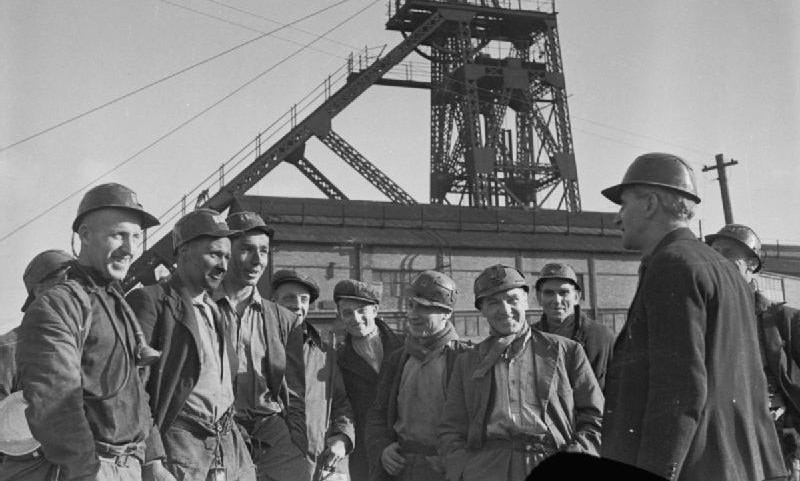In 1939, war time legislation made all men between the age of eighteen and forty liable for conscription, with over 1.5 million men of all backgrounds conscripted to the British armed forces by the end of the year. This had a devastating effect on the mining workforce. In an industry that was unregulated, dirty and dangerous, some saw the war as a chance to escape the mines and, despite coal mining being a reserved occupation, young miners chose to leave the pits in favour of a life in the forces.
By 1943 coal stocks were low and the country became desperate. To address the crisis, Minister for Labour and National Service Ernest Bevin devised a scheme to employ fit young men for the mines. Bevin concluded that the fairest approach was a simple ballot of conscripted men between the age of eighteen and twenty five. Once a month his secretary reportedly drew lots from the minister’s recognisable Homburg hat.
Those selected attended a four week training session before being posted to coal mines across the country, where they supported the remaining experienced miners at the coalface. From all walks of life, many of the so called ‘Bevin Boys’ had no experience of hard manual labour and the training barely prepared them for life down a pit. On top of that they were often treated with disdain by the community, seen as cowards who had chosen not to fight on the front. The scheme ended in 1948, by which time over 48,000 men had been sent down the mines in the name of the war effort.
Despite their hard work the Bevin Boys efforts went largely unrecognised. All full time personnel of the British armed forces received a war medal on discharge, regardless of where their time was served. Sadly this medal was not awarded to the Bevin Boys. They were finally given permission to join the annual Remembrance Day Parade at the Cenotaph in 1998.
Finally, in 2008, Gordon Brown awarded commemorative badges to the twenty seven surviving men who were conscripted or volunteered to work as miners during World War Two. Mr Brown said: “The service that the Bevin Boys gave to this country was incredibly important and not only helped us to win the war but also to rebuild our country after the war. The Bevin Boys’ contribution, like that of the Spitfire Women, the Women’s Timber Corps and the Women’s Land Army, did not receive the recognition it deserved at the time as honours were concentrated on those who saw frontline service.”
Listen to first hand accounts of the Bevin Boys experience with this snippet from BBC archives, originally broadcast in 1983.
